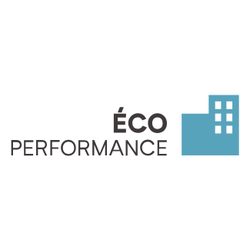
Open
Tax credit for R&D labour costs
Last Update: October 27, 2025
QC, Canada
Tax credit for R&D in Quebec
Tax Credits
At a glance
Funding available
Financing goals
Develop a new product
Research and experimental development
Renovate your business/factory
Eligible Funding
- Maximum amount : 3,000,000 $
- Up to 30% of project cost
Timeline
- Open Date : November 14, 2019
Eligible candidates
Eligible Industries
- Professional, scientific and technical services
Location
- Quebec
Legal structures
- For-profit business
Annual revenue
- $ 75,000,000 maximum revenue
Organisation size
- All organization sizes
Audience
- All groups
Overview
Get a tax credit between 14 and 30% of labour costs for your scientific research and experimental development expenditures.
Activities funded
- Conducting scientific research and experimental development (R&D) projects in Quebec.
- Collaborative R&D activities carried out on behalf of the company.
Examples of admissible projects:
$ 200,000
R&D in renewable energy technology enhancement
$ 120,000
Creation of eco-friendly materials via chemical research
$ 180,000
Developing advanced cybersecurity measures for financial institutions
$ 150,000
Development of AI algorithms for medical diagnosis improvements
$ 140,000
Improvement of agricultural biotech processes for crop yield
$ 160,000
Innovative software solutions for smart home systems
Eligibility
- The company must operate a business in Canada.
- The company must perform or have performed scientific research and experimental development (R&D) activities in Quebec for its own account.
- The company must pay eligible R&D salaries and certain amounts to third parties for eligible R&D work performed in the relevant fiscal year.
Who is eligible?
- Corporations operating a business in Canada
- Companies conducting or commissioning scientific research and experimental development (R&D) in Quebec
Who is not eligible
- Companies that are exempt from tax.
- Crown corporations or subsidiaries wholly controlled by a Crown corporation.
- Companies controlled, directly or indirectly, by a prescribed research entity, or that were controlled by such an entity within the past 24 months, or companies related to such controlled companies.
Eligible expenses
- Salaries paid to employees of the company for R&D work performed in Quebec during the year.
- Portion of payments made to subcontractors with whom the company has a dependent relationship, corresponding to salaries paid to their employees for R&D services performed in Quebec.
- Portion of payments made to subcontractors with whom the company has a dependent relationship, further subcontracted to other dependent subcontractors, corresponding to salaries paid for R&D work performed in Quebec.
- Half of payments made to independent (non-dependent) subcontractors for R&D work performed by their employees in Quebec.
- Half of the portion of payments made to dependent subcontractors who then subcontract to independent parties, corresponding to R&D work carried out for the company in Quebec.
Eligible geographic areas
- Companies conducting scientific research and experimental development (R&D) in Quebec.
How to apply
1
Preparation of documents
- Fill out the Tax Credit form related to salaries – R&D (RD-1029.7).
- Fill out the Deduction of Expenses Incurred for Scientific Research and Experimental Development form (RD-222).
- If necessary, complete the Agreement on the Expense Limit between Associated Corporations form (RD-1029.7.8).
- Prepare a document detailing the expenses incurred.
- Gather the supporting documents for the expenses.
- Develop a list of employees with their name, social insurance number, hourly wage, and time dedicated to R&D activities.
- Establish a list of contractors with their name, address, and amount paid.
- Collect invoices and proof of payment from contractors.
- Prepare a reconciliation of R&D expenses.
- Develop organizational charts for the company and associated companies.
- Include a copy of the notice of assessment issued by the Canada Revenue Agency for the previous year.
- Prepare a document explaining the discrepancies between certain tax amounts if applicable.
- Include the federal form T661 for the previous and current year.
- Provide the roles and responsibilities of employees who received R&D support salaries.
- Include time sheets and calculation methods for the allocation of support salaries.
- Provide proof of the inclusion of the tax credit amount in the company's income, if applicable.
2
Entry of information in the tax return
Enter the name of the tax credit and its code (02) as well as its amount in lines 440p to 440y of the income tax return.
3
Transmission of the declaration and documents
- Attach forms RD-1029.7, RD-222, and RD-1029.7.8, if applicable, to the tax return.
- Include all required documents and submit them simultaneously to expedite processing.
- Send the return and documents via the Internet if the functionalities of the software used allow it; otherwise, send them by mail.
- Ensure to include the company's name, its identification and file numbers, as well as the fiscal year's closing date on each document sent by mail.
Additional information
- Supporting documents must be submitted in a single package for quicker processing.
- Paper submissions require clear identification of the company, including name, identification and file numbers, and fiscal year-end date on each document.
- If documents cannot be attached to the tax return, they must be sent within 12 months after the deadline for filing the return.
- Internet submission via authorized software is possible, in which case paper documents are not required.
Apply to this program
Frequently Asked Questions about the Tax credit for R&D labour costs Program
Here are answers to the most common questions about the Tax credit for R&D labour costs. This section explains what the program is, how much funding is available, eligibility requirements, application deadlines, and other important details to help you determine if this grant is right for your business.
What is the Tax credit for R&D labour costs?
How much funding can be received?
Who is eligible for the Tax credit for R&D labour costs program?
What expenses are eligible under Tax credit for R&D labour costs?
Where is the Tax credit for R&D labour costs available?
Is the Tax credit for R&D labour costs a grant, loan, or tax credit?
Who are the financial supporters of the Tax credit for R&D labour costs?
Apply to this program
More programs like this

Grant and FundingClosed
PSCE – Component 2
Non-repayable funding to support SMEs’ export market diversification

Grant and FundingOpen
SCALE AI — Acceleration
Supports Canadian AI startups and SMEs focused on value chains

Tax CreditsOpen
Development of E-Business Tax Credit (CDAE)
Tax credit for development of a Quebec e-business

Tax CreditsOpen
Research, Innovation and Commercialization Tax Credit (CRIC)
Refundable tax credit for Quebec business R&D and precommercialization

Grant and FundingClosed
NovaScience Program - Support for projects in scientific culture and innovation
NovaScience promotes scientific culture and innovation development

Grant and FundingClosed
Support for Innovation and Productivity for Québec manufacturing companies (SIPEM) - Part 2
Boost productivity through targeted technological innovations

Grant and FundingOpen
Technology and Business Demonstration
Financial support to demonstrate electricity saving technology in Quebec

Grant and FundingClosed
NovaScience Program — Support for the position of innovation and commercialization manager
Ministère de l'économie, de l'innovation et de l'énergie du Québec (MEIE), Government of Canada, Gouvernment of Québec
NovaScience fund supports creating innovation and commercialization roles

Grant and FundingOpen
Roulez Vert — Rebate for charging station at work
Get financial aid to install electric charging stations at your Quebec business

Grant and FundingOpen
ÉcoPerformance — Standard Analysis Stream
Supports feasibility analyses to reduce greenhouse gas emissions
Sign up to our platform to access the Tax credit for R&D labour costs information sheet for free
Get access to 10,000+ programs, practical guides, personalized alerts, and an AI assistant to support your grant applications.